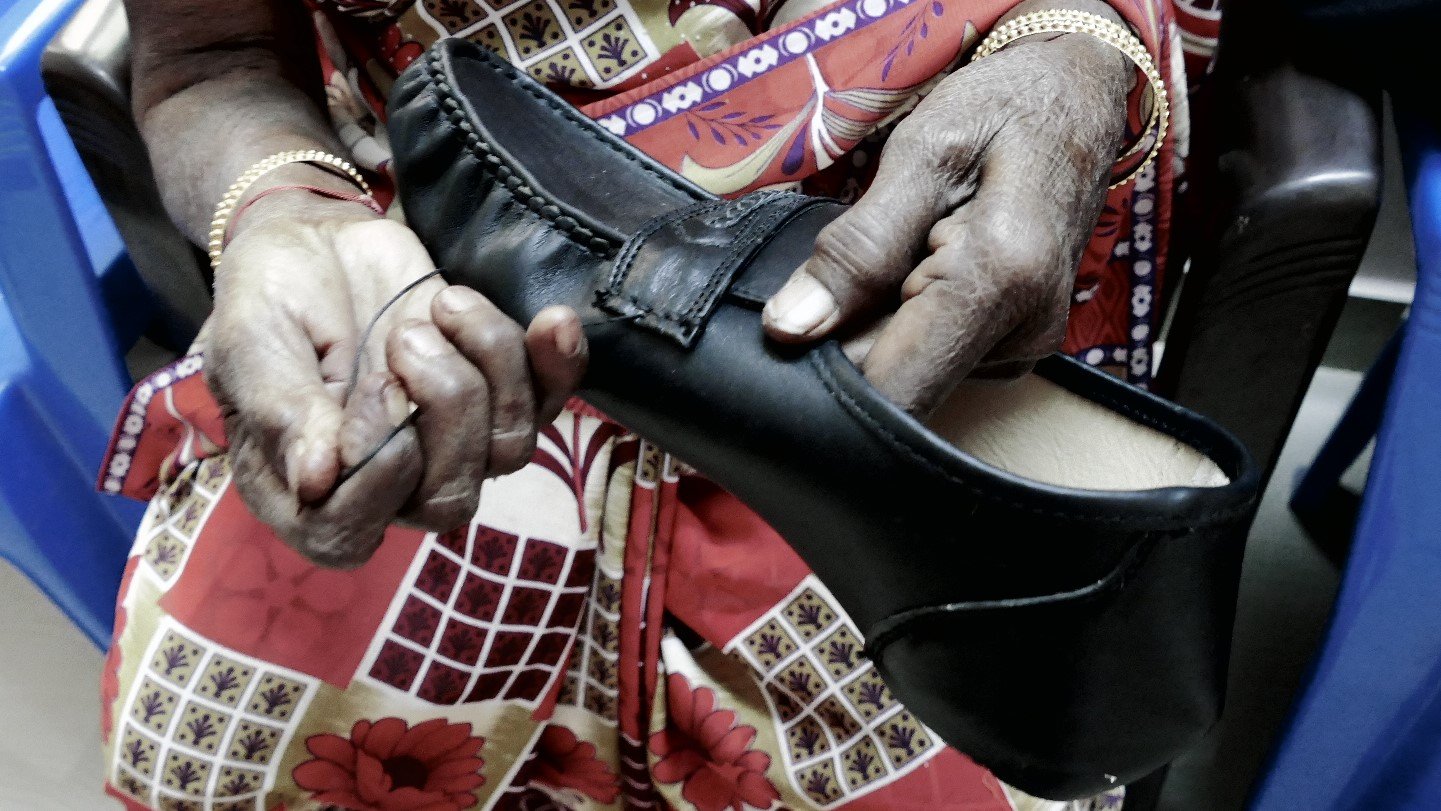South India: Ambur, Tamil Nadu
Cividep India
Ambur in Tamil Nadu is one of India’s leading leather export hubs.
Female homeworkers are responsible for a highly labour-intensive stage of leather shoe production - that of stitching shoe uppers. This work is often sub-contracted, making homeworkers amongst the most precarious workers within the supply chain, deprived of regular work, legal protections and benefits extended to formalised workers.
Homeworkers typically earn below the minimum wage rate and have almost no access to collective bargaining. Reports also suggest that homeworkers regularly experience injuries from accidents and severe health risks due to the repetitive strain caused by hand-sewing leather.
The Hidden Homeworkers Project, through their local partner Cividep, are working in the Ambur cluster to build capacity of these workers, by providing them critical trainings on issues such as gender, financial literacy and occupational health and safety.
The homeworkers are also being supported in coming together as an informal collective called as ‘Penn Thozhilalar Munnetra Sangam’ with a growing number of members from the Ambur homeworking community. The project aims to improve the working conditions of homeworkers, working in global footwear value chains by innovating and extending multi-stakeholder-led transparency and traceability systems to the lower tiers of garment value chains, with the aim of improving labour rights for these workers.
Cividep has been working in South India on corporate accountability and the advancement of workers’ rights since the year 2000.

Resources
Read the full Research Report from our partner Cividep India’s 2021 survey of homeworkers in Tamil Nadu, stitching shoes for global retailers.
Check out the headline findings from Cividep India's latest study of homeworkers stitching shoes for global footwear brands in South India.

South India: Tiruppur, Tamil Nadu
SAVE
Known as the ‘t-shirt capital’, Tiruppur is the knitwear export cluster of India.
The cluster is characterised by small and medium production units informally linked to convert cotton into garments. Estimates suggest that up to 40,000 homeworkers, mostly women, are part of the workforce in this cluster. Homeworkers are involved in tasks such as cropping, stitching, inserting the tie into tracksuit pants, cutting loose threads, and packaging.
Reports document poor working conditions for homeworkers. Homeworkers in the cluster have poor access to social security and basic services, and often work for wages that fall below minimum wage standards.
The Hidden Homeworkers Project, through their partner SAVE (Social Awareness and Voluntary Education) work in the cluster to improve living and working conditions of these extremely vulnerable workers in the supply chain.
Under the project 'Anukatham’ an unorganised workers union was registered in July 2021. SAVE has reached out to thousands of homeworkers, providing them with information, linked them with unorganised workers welfare board for social protection schemes, and trainings on issues such as occupational health and safety and financial literacy.
SAVE is also a member of the Tiruppur Working group, a Muti stakeholder initiative that was formed under the Hidden Homeworkers Project to address issues of informal workers. Members include international brands, MSIs, Employer’s Associations as well as Civil Society Organisations.
SAVE is a non-profit organisation with focus on elimination of child labour, empowerment of women and youth, promotion of fair labour standards, and comprehensive development of both rural and urban poor communities.
Resources
Read our update on the Tirupur Working group, from our Hidden Homeworkers partner SAVE.
A short summary of the headline findings from our partner Cividep India's latest research with homeworkers stitching shoes for global footwear brands in South India.







